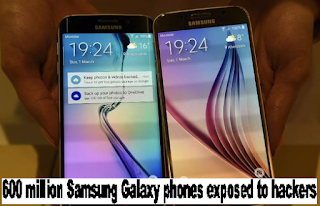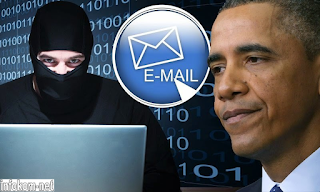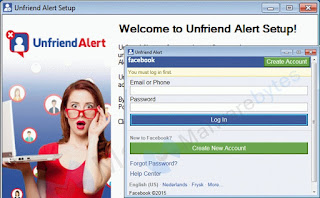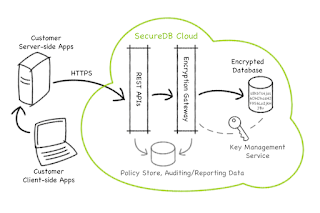Have you ever thought about life without internet connection?
If until now you can already feel the benefits of the internet, and all our life also hung with the internet. From the start for the purposes of work, get useful information, obtain the latest news to just to say hello to your friends through social applications and more.
So what if one day just suddenly die internet. How would todays society fare without the Internet, if it suddenly collapsed or 'went off-line'?.
Could you survive?
The tendency of humans to it difficult letting go of what he already owned. Because it seems it will be immortal forever until it seems can not be separated.
Until then we'll explore life without the Internet a little further, thinking about the impact on society, our daily lives and the places we work, whether employed or our own business.
How exactly the Internet Plug could ever get pulled is a complicated question, due to the expansive infrastructure that makes up the Internet. It would probably require the shutting down of every server and local DNS around the world.
Some people have spoken about a major virus infection spreading through all servers and computers, rendering them / the Internet in a paralyzed state.
There is also another wild theory where by the wind generated by huge solar flares will disrupt anything that carries current, from telegraph wires, anything metal, computers, servers etc.
Some people have spoken about a major virus infection spreading through all servers and computers, rendering them / the Internet in a paralyzed state.
There is also another wild theory where by the wind generated by huge solar flares will disrupt anything that carries current, from telegraph wires, anything metal, computers, servers etc.
You can read about this theory if you Google “Carrington Event of 1959” This theory is said to be predicted by Nasa.
Solar storm will produce high levels of radiation and influence is huge for the magnetic field of the Earth. The radiation then undermine the whole electromagnetic waves on Earth and make a major disaster.
The explosion of the Sun cause electromagnetic radiation followed by radiation in the form of protons. The explosion also spur mass pebbles while letting the Corona, which is the plasma from the Sun that was blasted out into space.
High-energy particle radiation and pebbles while letting the masses storm related to the Corona of the Sun. High-energy particles will reach Earth within 1-2 days, while the electromagnetic radiation will reach Earth within 8 minutes.
Space Weather revealed that pebbles while letting the masses of Corona happens moves with a rate of 2,200 km/s towards the Earth. The amount of material that is released in the process can reach billions of pounds.
Diverse consequences due to high energy particles and pebbles while letting the masses of Corona that cause solar storm is need to look out for. Solar storm could lead to malfunctioning satellite, communications, and navigation.
The impact of the worst Solar storms have occurred in the 19th century, which at that time resulted in the disruption of Telegraph Network. Disturbances also occurred in 1989 when the Quebec area power outage of up to 9 hours.
Could you imagine Earth without telecommunications? Almost the entire mass transportation will be paralyzed, from train, subway, MRT, and of course aircraft. All forms of GPS-based navigation and related satellite will be hit by the outbreak. Mobile and radio networks will cease to exist.
How would having no Internet affect the general personal user? Well apart from every teenager screaming because they can’t log on to Facebook, it all comes down to how much we personally use the Internet and what for.
Some of us hardly use the Internet, where others pretty much live their life around it! Equally some actually live a completely New Life within the Internet like those who use Second Life.
Some of us hardly use the Internet, where others pretty much live their life around it! Equally some actually live a completely New Life within the Internet like those who use Second Life.
Many of us use the Internet to communicate, especially those in the lower age brackets above 10 years. From email to chat forums, social networks, dating sites and even virtual worlds our demands on the Internet for social communication and networking are huge. So it’s easy to anticipate that a life without the internet would force people to turn back to grass roots and socialise and communicate on a very basic level.
My worry with this though, specifically within the lower age brackets is will the people who’ve grown up with the Internet around them be able to embrace social engagement on a grass roots level and know how to socialise?
Would this better enhance communication skills and language in relation to studies on how ‘Internet slang’ has merged into our language skills?
Would our ability to meet new people outside our immediate area be severed and thus affecting who we meet, socialise and interact with and above all whom we spend our lives with? How did you meet your partner? Was the Internet involved in the process?
My worry with this though, specifically within the lower age brackets is will the people who’ve grown up with the Internet around them be able to embrace social engagement on a grass roots level and know how to socialise?
Would this better enhance communication skills and language in relation to studies on how ‘Internet slang’ has merged into our language skills?
Would our ability to meet new people outside our immediate area be severed and thus affecting who we meet, socialise and interact with and above all whom we spend our lives with? How did you meet your partner? Was the Internet involved in the process?
We use the Internet to communicate more than ever and it’s become an integral part of any standard means of communication. So with no Internet our means of communication would have to adapt. I very much doubt we’ll be sending smoke signals, but letters would fulfil the hole e-mails left and phones would fulfil the gaps that instant messaging, chat and social media created.
It’s a simple observation that the Internet sped up the world and lives we live. We communicated quicker, we could buy and sell quicker and we could find information quicker. So with the dilemma of having no Internet we’d surely expect the world to slow down, in business, society and communication. Coping with this huge decrease in processing speed would have extended impact throughout the business and society worlds to a point we’d wonder how we ever coped without it.
It’s a simple observation that the Internet sped up the world and lives we live. We communicated quicker, we could buy and sell quicker and we could find information quicker. So with the dilemma of having no Internet we’d surely expect the world to slow down, in business, society and communication. Coping with this huge decrease in processing speed would have extended impact throughout the business and society worlds to a point we’d wonder how we ever coped without it.
Almost all businesses nowadays have some relationship with the Internet whether it’s a simple business listing or an online store. What implications would be put upon businesses across the world with the loss of the Internet?
Perhaps world wide recession, stock markets would collapse, millions of businesses go bust and millions of people loose their jobs?
The impact on businesses that utilise the Internet would be massive and the make or break factor would be if they could survive without it?
But there may be some advantages amongst this devastation; as consumers we’d probably start buying locally, enriching our local towns and shops. We’d look for local services and sustain local economies by trading within our immediate areas.
The loss of jobs that relate to Internet Business would be hard to digest. Jobs at our local super market working the tills would suddenly be in high demand as well as many other jobs that don’t directly relate to the Internet.
Perhaps world wide recession, stock markets would collapse, millions of businesses go bust and millions of people loose their jobs?
The impact on businesses that utilise the Internet would be massive and the make or break factor would be if they could survive without it?
But there may be some advantages amongst this devastation; as consumers we’d probably start buying locally, enriching our local towns and shops. We’d look for local services and sustain local economies by trading within our immediate areas.
The loss of jobs that relate to Internet Business would be hard to digest. Jobs at our local super market working the tills would suddenly be in high demand as well as many other jobs that don’t directly relate to the Internet.
Above all we have to remember we got to where we are today without the Internet. The Internet was a technological advancement that excelled us into the 21st century and changed the way we socialised, did business and purchased goods.
It paved the way to the future and still has many exciting advancements ahead of it’s self. Witnessing the loss of the Internet is probably very unlikely, but either way I’m quite sure as a human race we’d adapt and persevere as we have done for thousands of years.
Those who grew up with the Internet well established around them simply can’t comprehend life without it. There are however many of us who practiced life before it’s time and have experienced a life without the Internet.
It paved the way to the future and still has many exciting advancements ahead of it’s self. Witnessing the loss of the Internet is probably very unlikely, but either way I’m quite sure as a human race we’d adapt and persevere as we have done for thousands of years.
Those who grew up with the Internet well established around them simply can’t comprehend life without it. There are however many of us who practiced life before it’s time and have experienced a life without the Internet.
Have reflected by you, there are our brothers who can life without electricity?
Then they too can live without the internet. And they are both fine, happy with his life.
The conclusion that a simple, happy life and how large the benefits of the internet for you.
Only you can answer it. How have the internet makes you happy?













